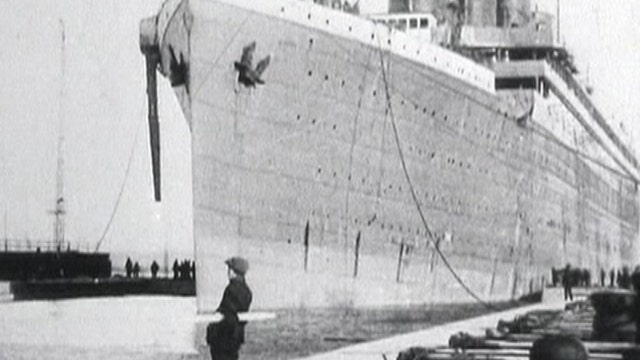Did a coal fire sink the Titanic?
New British documentary reveals an alleged massive, unreported coal fire on-board the Titanic could have played a role in the ship’s doomed maiden voyage
A deadly combination of ice – and fire – share collective blame for the sinking of the Titanic, according to a group of experts who believe a massive below-decks blaze weakened the hull so massively that an iceberg had no problem cutting a gaping hole through it.
Journalist Senan Molony studied rarely-seen photographs of the doomed luxury liner before it left Belfast shipyard and, along with several experts, identified 30-foot-long black marks along the hull likely caused by the massive on-board coal fire, The Independent reported.
The black marks are located just behind where an iceberg penetrated the Titanic late at night on April 14, 1912.
“We are looking at the exact area where the iceberg stuck, and we appear to have a weakness or damage to the hull in that specific place, before she even left Belfast,” Molony said in a documentary broadcast on Britain’s Channel 4 on New Year’s Day.
TITANIC ARTIFACTS REVEAL GRUESOME DISCOVERY OF LAST LIFEBOAT
Though the fire – which raged at 1000 degrees and resisted attempts by a 12-man crew to extinguish it – was previously known about, the black marks that likely resulted from it were only recently uncovered.
Researcher Ray Boston in 2008 said the Titanic was probably traveling so fast on the night it sank because of the fire. Though the fire started about 10 days before the ship departed, it continued to burn in coal bunker six of the ship throughout the ill-fated voyage, according to testimony from a stoker who survived the sinking. The stoker told an inquiry that many workers believed fireboats in New York harbor would eventually need to be called upon to help extinguish the fire.
“But we didn’t need such help,” he said, according to The Independent. “It was right under bunker number six that the iceberg tore the biggest hole in the Titanic.”
Boston said “inevitable explosions” would have resulted from the fire and the owner of the ship hoped to reach New York and unload the passengers before they occurred. So the ship sailed speedily through icy waters with lookouts posted in a single location – and struck an iceberg.
“This isn’t a simple story of colliding with an iceberg and sinking,” Molony said. “It’s a perfect storm of extraordinary factors coming together: fire, ice and criminal negligence.”









































